Philanthropy and Volunteerism
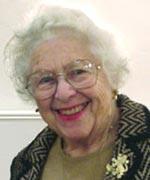
Florence Zacks Melton
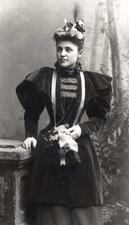
Alice Davis Menken
Alice Davis Menken was an influential social reformer whose many published works had a notable impact on the field of penology. She became interested in delinquency among young female Jewish immigrants while working at a settlement house on the Lower East Side. Menken proceeded to pioneer the argument that therapy, not punishment, is the most effective treatment for young delinquents.

Helen Menken
One of the finest actors of her day, as well as a producer and a philanthropist, Helen Menken devoted her entire life to the American theater. While she was known for playing a lesbian in The Captive, for which she was arrested during a performance, and her role as Elizabeth I in Mary of Scotland, her biggest contribution to theater was creating the 1942–1946 Stage Door Canteen through the American Theater Wing, in which Broadway stars performed for service people.
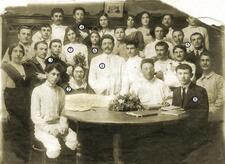
Hephzibah Menuhin
Hephzibah Menuhin was a talented pianist and a dedicated human rights activist. After a successful international career performing with her brother Yehudi, Menuhin worked with her husband to assist the poor, the homeless, and the recently ill and served as president of the Women’s International League for Peace and Freedom.

Idina Menzel
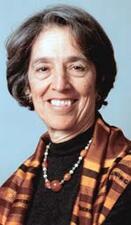
Ruth Messinger
Following successive careers as a New York City politician president and director of a major Jewish organization, Ruth Messinger has become nothing less than an icon of American Jewish progressive leadership. She became Manhattan borough president in 1990. After losing the 1997 mayor’s election to Rudolph Giuliani, she became the president and CEO of the American Jewish World Service, a position she held from 1998 to 2017.
Linda Rosenberg Miller
Marion Simon Misch
Marion Misch participated in a great number of volunteer activities through her lifetime, all the while running a successful business following the death of her husband. Her primary interests centered on education and Judaism, and her volunteerism reflected her concern for these issues.
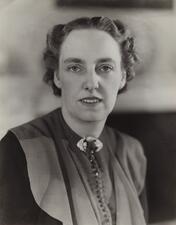
Eva Violet Mond Isaacs, Second Marchioness of Reading
Lady Eva Violet Mond Isaacs, Marchioness of Reading, was born into one remarkable family and married into another. She occupied a unique place in Anglo-Jewry; as Vice President of the World Jewish Congress and President of its British section she was an eloquent and vocal supporter of the Zionist cause and the young state of Israel.
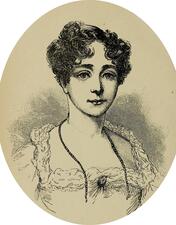
Judith Montefiore
Often referred to as the “First Lady of Anglo Jewry,” Judith Montefiore embodied all the Victorian virtues of high moral purpose, sense of duty, charity, and public-mindedness and was also a fierce loyalist to her faith and her people, devoted to Jewish causes and the welfare of Jews the world over.
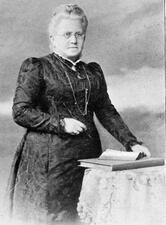
Lina Morgenstern
In the face of formidable anti-Semitic opposition, Lina Morgenstern was a highly successful feminist author, educator, and peace activist who was supported by many, including the Prussian Empress Augusta. In 1896 she organized the first International Congress of Women in Germany, which was attended by feminist leaders from all over the world.
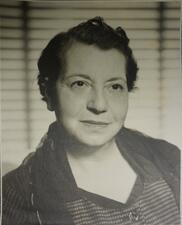
Moroccan Jewish Women and Politics
Jewish women have been involved in Moroccan politics since at least the nineteenth century. From a Jewish martyr of the early nineteenth century, to a twenty-first century Jewish woman running for parliament, Morocco has been home to remarkable Jewish women participating in political life.
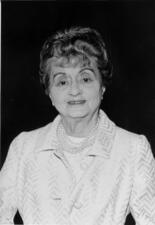
Lucy Goldschmidt Moses
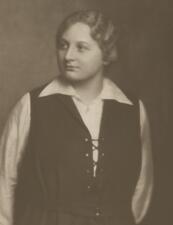
Anitta Müller-Cohen
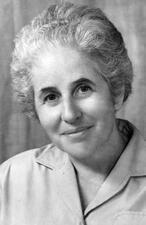
Shulamith Nardi
Shulamith Nardi helped shape relations between Jews and gentiles in the fledgling State of Israel through her writing and editing for several Zionist publications, her analysis of Jewish literature, and her work as advisor on Diaspora affairs to four Israeli presidents.
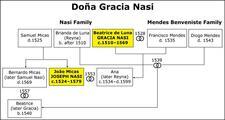
Doña Gracia Nasi
Doña Gracia Nasi was the embodiment of passionate solidarity among exiles. As a young woman she inherited her husband’s fortune, and fled from Lisbon to Venice to Ferrara, where her family lived openly as Jews for the first time. In Constantinople, she assumed a role of leadership in the Sephardi world of the Ottoman Empire.
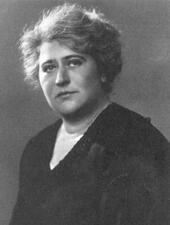
National Council of Jewish Women
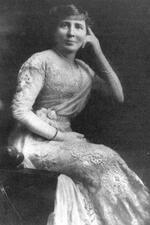
National Federation of Temple Sisterhoods
Founded in 1913 as the National Federation of Temple Sisterhoods and officially renamed Women of Reform Judaism (WRJ) in 1993, the WRJ has for more than a century galvanized hundreds of thousands of Jewish women to support and advance Reform Judaism, the Jewish people, and Jewish values in their home communities, around the country, and around the world.
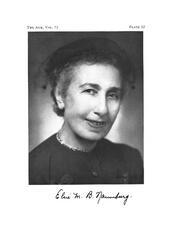
Elsie Margaret Binger Naumburg
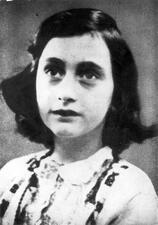
Modern Netherlands
Like Jewish women everywhere, Dutch Jewish women struggled with issues of assimilation, emancipation, and equality as both Jews and women. This article summarizes the conditions and challenges facing Jewish women in the Netherlands and the paths to progress and change they sought—education, work, activism, and literature, among others—from the nineteenth century to the present, including after the particular decimation of Dutch Jewry during the Holocaust.
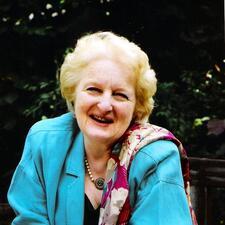
Julia Neuberger
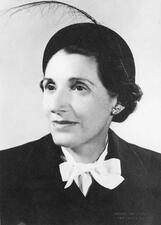
Estelle Newman
Blanche Cohen Nirenstein
Descending from a family active in Jewish communal life, Blanche Cohen Nirenstein further developed her leadership abilities in a wide range of social science activities. Nirenstein found a myriad of ways to help Jewish widows and needy children, from founding a kosher summer camp to supporting Holocaust survivors.
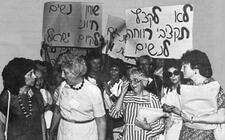
Non Governmental Organizations (NGOs) in Israel, 1948-2000

Meyera Oberndorf
Meyera Oberndorf blazed trails in Virginia politics as the first woman and first Jewish mayor of Virginia Beach, the largest city in the Commonwealth. From 1988 to 2008, she stood up to a long-ingrained good old boy network and led the city through difficult issues including racial unrest, all while staying closely connected to her citizens as “the people’s mayor.”


